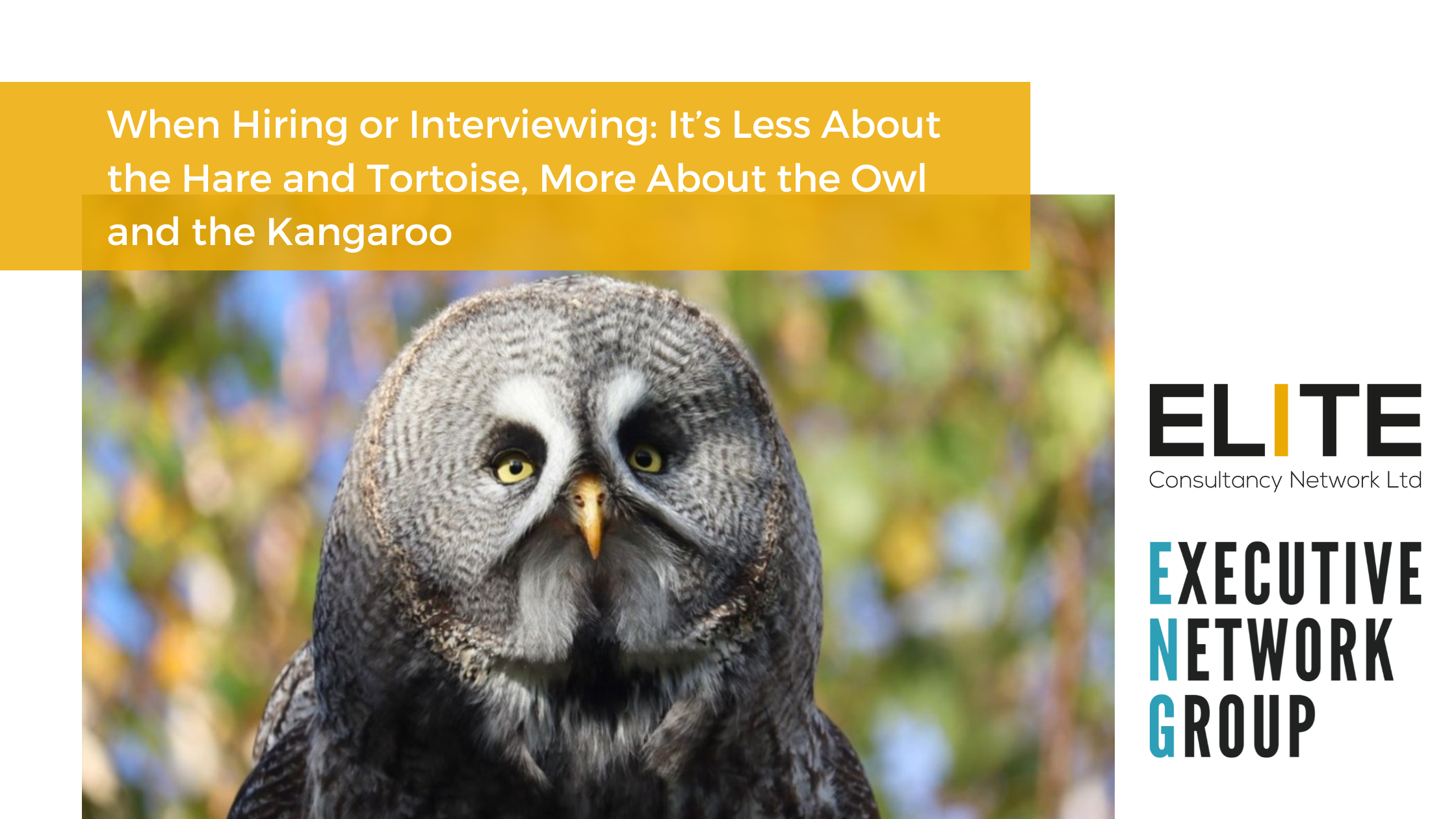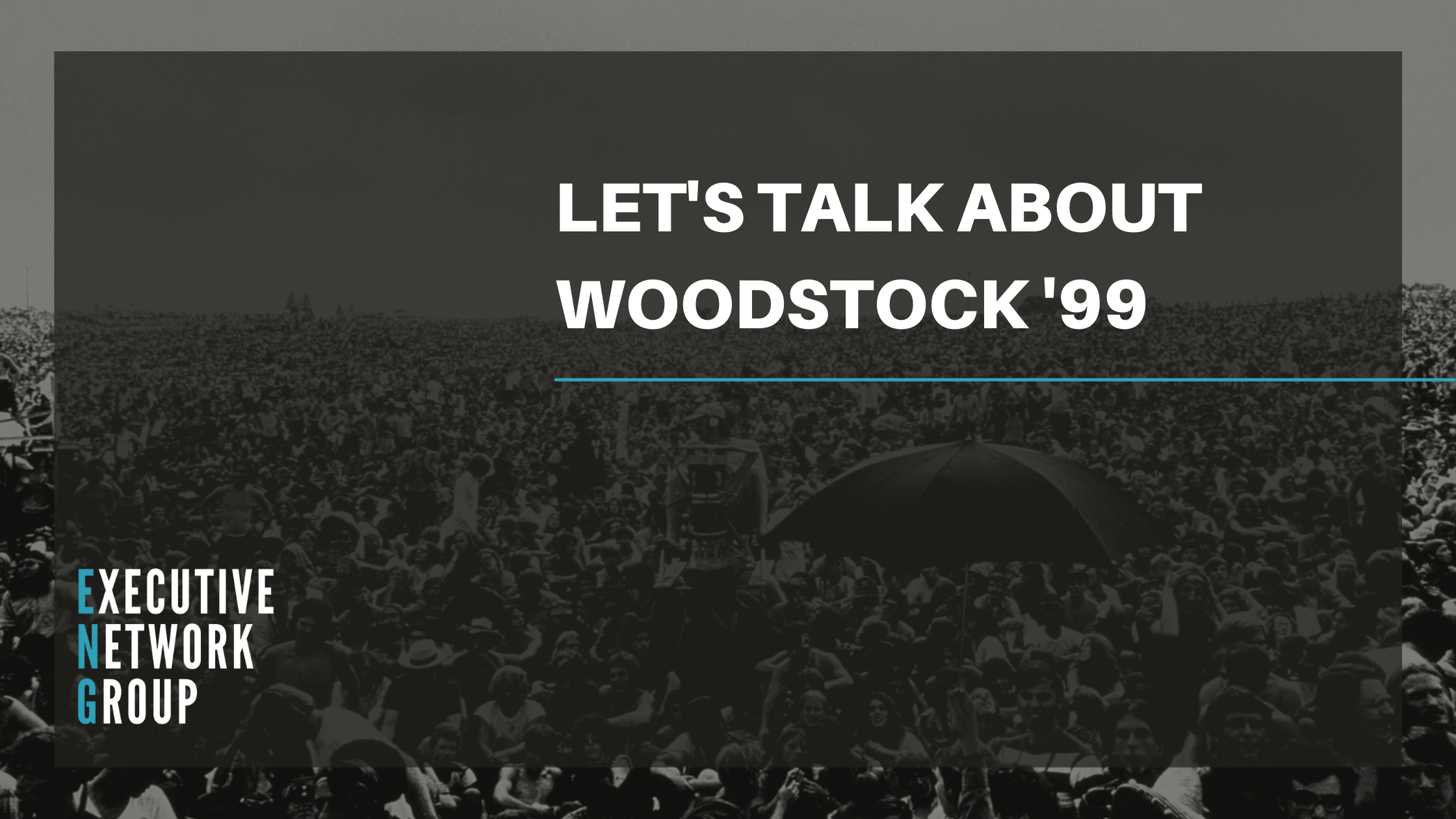When Hiring or Interviewing, It’s Less About the Hare and Tortoise, More About the Owl and the Kangaroo

For years, “job hopper” has become a general character assessment of candidates who are frequently active in the market. Is it fair to tar everyone with the same brush?
Career kangarooing has become more prevalent in recent years, in particular since the UK’s Covid Lockdowns beginning in March 2020. Lockdown threw the UK’s job market into a period of turbulence, leaving people with no other option than to go into a job to keep them going that they was never going to be their long term job. During Covid, the number of people in work fell by 825,000 people between January-March 2020 and October-December 2020, while unemployment rose by almost 400,000 and the number of people who were economically inactive rose by 327,000. Redundancies reached record highs while UK working hours dropped to the lowest since 1994.
But what does all of this mean?
Whilst Covid had a clear significant impact on job tenures, for someone who already had a history of frequently changing roles prior to the Covid period of change, they are still likely to fall into this category. However, there is a large proportion of those tarred as job hoppers who have been wise in their decisions to move.
Diversifying and transferring a skillset:
A change of role provides employees the potential for exposure to various companies, roles and even industries, leading to an increased diverse skillset, leading to an adaptable candidate who is experienced in handling different challenges and environments, which can accelerate the learning curve given the need to adapt to new environments, technologies and company processes.
Employees want to avoid “Career Plateau”:
A change of role following a period of lack of professional development, regular challenges or broken promises are some of the most common reasons for an employee moving on. Who can fault that? Someone would be a wise owl to consider their options. In the current market, if you aren’t moving forwards, you’re moving backwards. To retain top talent, employers must make a conscious effort to have opportunities for professional development readily available to maintain employee engagement before another company can offer a guided career progression path.
Beating the “Cost of Living” crisis:
The one we’re fed up of hearing about but can’t avoid. Frequent job moves provides the opportunity for faster salary growth via negotiation when joining the business. As an active candidate in the labour market who is getting knocked back for that pay rise you’ve worked yourself into the ground for, don’t have access to a regular pay review or can’t face approaching your unapproachable boss for the awkward “money talk”, it’s time to see what’s out there. In August 2023, average wage growth in the UK rose above inflation for the first time in almost two years. Annual growth in regular pay (excluding bonuses) was 7.8% in the three months to August 2023, among the fastest growth rates on records dating back to 2001. A positive indication the opportunities to earn more is out there and another reason to explore your options within your market.
So what does this mean to me if I’m an employer hiring in this market?
Being open minded is key. Moving jobs is never easy and isn’t something that people necessarily enjoy. As an employee, staying in a company and environment you are familiar with or feel comfortable in, through feeling valued, challenged or well-compensated, is often preferrable than the process of getting up to speed in a new role and company.
When hiring, considering the multiple factors that have led to a professional moving several times within a certain period and being more open minded when exploring the reasons behind this often results in a better understanding of people and their motivators, their drivers and their turn on/turn offs, giving candidates the opportunity to justify or reason their moves can in many cases paint a different story to the preconceived idea that this person is disloyal or unreliable.
What does this mean for me as a candidate?
If you fall into the category of having more than 3 employers in a 5 year period, irrespective of Covid, having a clear understanding and being able to explain the reasons behind your moves confidentially and transparently will often put you in better stead than appearing ambiguous when being quizzed on reasons behind your moves. This could include being humble and admitting you made a mistake or hadn’t done your due diligence prior to moving companies, or that in fact you were sold a dream that materialised into a nightmare.
Whatever category, career animal, or side of the hiring fence you find yourself, it’s always worth considering whether your perception is in fact the reality, or just your reality.

